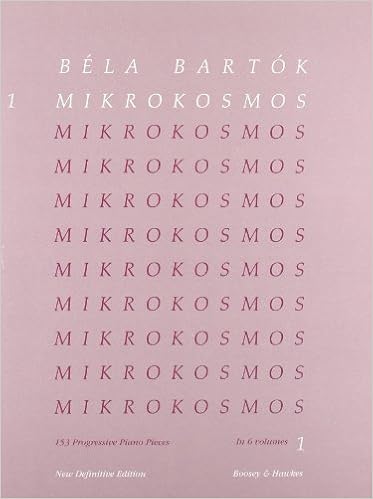
By David Cooper
ISBN-10: 0300148771
ISBN-13: 9780300148770
Cooper illuminates Bartók’s own existence and relationships, whereas additionally increasing what's recognized in regards to the impression of different musicians—Richard Strauss, Zoltán Kodály, and Yehudi Menuhin, between many others. the writer additionally appears heavily at many of the composer’s activities and behaviors that could were manifestations of Asperger syndrome. The ebook, briefly, is a consummate biography of an across the world famous musician.
Read or Download Béla Bartók PDF
Similar songbooks books
Download e-book for kindle: Piano For Dummies, 2nd Edtion by Blake Neely
The long-awaited replace to the bestselling Piano For Dummies-featuring a brand new audio CDHave you usually desired to play piano? This revised version of the preferred Piano for Dummies makes it more straightforward and extra enjoyable than ever. when you do not know easy methods to learn song, this ebook explains in pleasant, simple language the entire fundamentals of track conception and applies it to enjoying the piano.
Gerry Mulligan's Gerry Mulligan - Classics PDF
To be used with all Bb, Eb and C tools, the Jazz Play-Along sequence is the final word studying software for all jazz musicians. With musician-friendly lead sheets, melody cues and different split-track offerings at the incorporated CD, this first-of-its-kind package deal makes studying to play jazz more straightforward than ever sooner than.
Download e-book for kindle: Eric Johnson: Ah Via Musicom by Eric Johnson
Note-for-note transcriptions for each device used on each tune. contains: Ah through Musicom * Cliffs of Dover * wilderness Rose * East Wes * 40 Mile city * excessive Landrons * not anything Can continue Me from You * Righteous * tune for George * Steve's Boogie * and Trademark. contains tab.
Rush, Guitar-Tab Edition (Guitar Anthology Series) by Rus (Rush) PDF
Note-for-note transcriptions of all of Alex Lifeson's licks on 20 songs from eleven albums through this famous person Toronto trio. contains: toward the center * chilly fireplace * far away Early caution * Dreamline * loose Will * l. a. Villa Stangiato * New global guy * A Passage to Bangkok * pink Barchetta * purple region A * Roll the Bones * express do not inform * The Spirit of the Radio * Stick It Out * Tom Sawyer * The timber * operating guy * YYZ * Xanadu.
- Messiaen: Quatuor pour la fin du temps
- Jazz of the 50's (Jazz Bible Fake Book Series)
- Wedding Collection for piano solo
- Álbum para guitarra (Album for guitar - Guitar Scores)
- Derek And The Dominos - Layla And Other Assorted Love Songs (Guitar Tab Edition)
- Harmonice musices odhecaton A
Extra resources for Béla Bartók
Example text
Bartók had made a piano transcription of Strauss’s tone poem Ein Heldenleben (1898) late in 1902 and played it to Emma Gruber on 15 November. He wrote to his mother on 17 January 1903, telling her how he had performed it from memory for Koessler in the concert hall of the Music Academy after his composition class. Although Koessler was immensely impressed by Bartók’s skill in memorising it, he did not hide the fact that he disliked the piece. Nine days later, in his first public appearance outside 28 Béla Bartók Hungary, Bartók performed his transcription for the Tonkünstlerverein (composers’ association), which met at the prestigious Musikverein in Vienna.
Bartók’s distortions of the ‘Gott erhalte’ had created something of a storm among some members of the orchestra, and according to a news item in Függetlenség (Independence) on 16 January 1904 titled ‘Politika a zenében’ (‘Politics in Music’), a number of Austrian players staged a demonstration during rehearsal of this section. Apparently Kerner brought the rehearsal to an abrupt end by laying down his baton and departing from the hall, leaving the musicians in confusion. Several performers – a report in Pesti Napló gives five – provided medical certificates to justify their subsequent absence, though despite the importance of their instruments to the ensemble, the premiere was able to take place.
Kossuth tries to pacify her mind, but he is no longer capable of dissembling his profound sadness. III. ’ He loses himself in sorrowful recollections of the glorious days, now vanished, of his nation. IV. ’ V. ’ The theme depicts the servitude which regards no laws and which no freedom alleviates. With the words: VI. ’ Kossuth tears himself away from these thoughts. He is resolved to win back by fighting [,] his natural right to freedom. VII. ’ – Kossuth’s summons to the Hungarian nation to fly to arms.
Béla Bartók by David Cooper
by Michael
4.2



